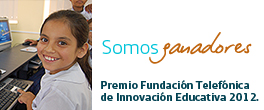Are you ready to leran comparative adjectives with these fun comparatives games? Here you have some activities that are great for introducing or reviewing comparative adjectives with beginner English language learners. Drag the adjectives into the correct category.(OPEN THE ACTIVITY HERE) https://wordwall.net/es/resource/70946677 What do you know about Harry Potter? Read and choose the correct comparative... Seguir lendo →
Simple Past games
Do you want to practise the Simple Past Tense in a fun way? Try these games and review the Simple Past tense grammar rules as well as the spelling rules and the Past Tense -ED pronunciations. Open the cages. Look and say. What did they do yesterday? https://wordwall.net/es/resource/70339530 Look and choose the correct option. https://wordwall.net/es/resource/4901404... Seguir lendo →
HOGWARTS MISSION 3: A BOOK REVIEW
Easter is around the corner and we will have time to relax and recharge body and mind for the coming term. What don't spend our free time reading a good book? If you are not sure which one to choose, student in Level 5 can recommend you some books. Pascua está a piques de chegar... Seguir lendo →
DO YOU KNOW? EPISODE 1
Do you know? is our own television serie in which students explore interesting facts from every city across the globe or about every topic that they can be interested in. Do you Know? é o noso propio programa televisivo no que os alumnos exploran feiros interesantes de calquera cidade do mundo ou sobre calquera asunto... Seguir lendo →
Book and film genres board game
Board games are anything but boring! Research shows many benefits to playing board games in the classroom. They can teach and reinforce many skills allowing students to learn without realizing it! Benefits of Playing Games Games are fun!Students have a sense of happiness and excitement, creating a positive learning environment. Making gameplay a routine in... Seguir lendo →
Express your opinion
Do you like going to the cinema? What about books? What is your favourite book? What do you think of it? Suppose you are with a group of friends discussing the film you would like to watch . Knowing how to express opinion and giving reasons is very important. So, here you have an interactive... Seguir lendo →
Hogwarts Mission 2: A Diary Entry
Mission 2 in Level 5 is completed and the Chamber of Secrets is open. We don't know what the next mission will bring, but we are looking foward to start the next one. They organized the task following four steps: complete the planning, write the draft, prepare the writing and give an oral presentation. Each... Seguir lendo →
Missions 2 are ready!
Congratulations! You have found the entrance os the Chamber of Secrets, but now you will have to figure out how to open it. At the end of this mission you will be able to speak Parsel, the language of snakes as Harry Potter does. Steady, ready go!!!!
Hogwarts Mission 1
First mission in Level 5 is completed. Our emails are ready to be sent and we'll look forward to our friends' emails about their hobbies, families and so on. https://vimeo.com/896323243?share=copy
Hogwarts Mission 1 : Our school leaflet
Hogwarts Mission 1 in Level 6 is over. Although it was a long hard task, the final leaflets were awesome. A nosa primeira misión en 6° está rematada. A pesares de que nos levou o seu, os folletos finais quedaron xenial. This time, our work plan promoted both individual and group work. The main goal... Seguir lendo →
ADVERBS OF FRECUENCY
Let’s start a new unit in Level 5. In this unit we will learn about free time activities at the weekend. We will use adverbs of frequency and talk about how often we do things. Take a look at these presentations and learn how to express frecuency. GENIALLY PRESENTATION PREZI PRESENTATION Let's practise a little... Seguir lendo →
Ordinal Numbers 1-30
One, two, three … are cardinal numbers.First, second, third … are ordinal numbers. You can normally create ordinal numbers by adding -TH to the end of a cardinal number. Four – Fourth Sixteen – Sixteenth The main exceptions are with the numbers 1, 2, and 3. one – first two – second three – third Also you need to be careful with the spelling of... Seguir lendo →




























